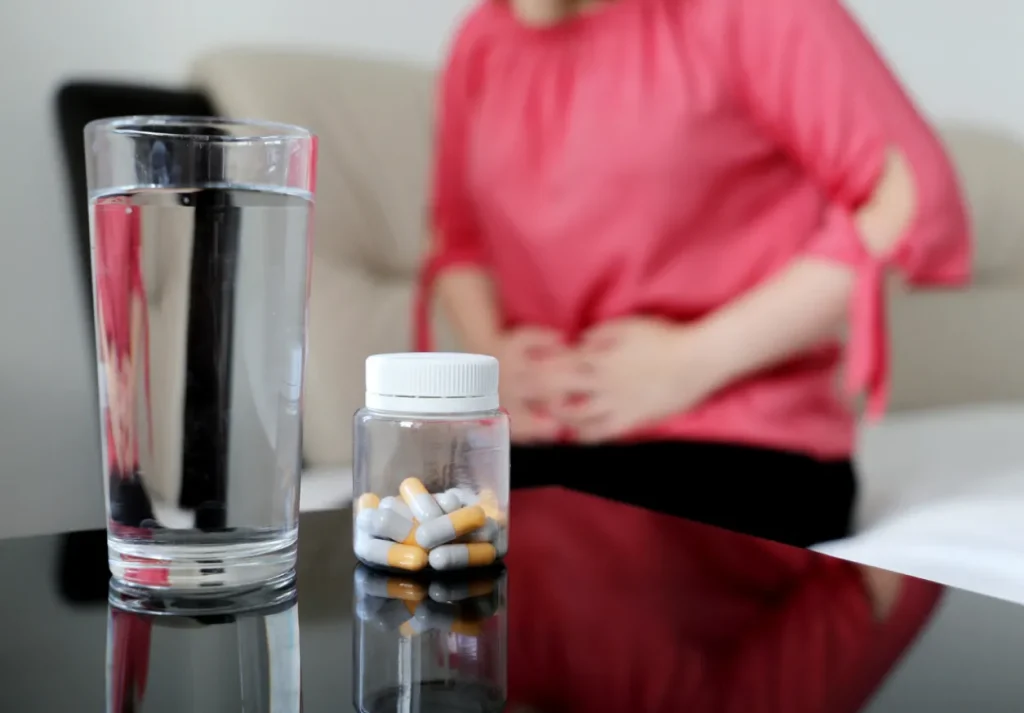Inflammatory Bowel Disease (IBD), which includes Crohn’s disease and ulcerative colitis, is a chronic condition that affects millions of people worldwide. Despite ongoing research, a cure for IBD has not yet been found. However, recent breakthroughs in treatment and new therapies offer hope for better management of symptoms and improved quality of life for those with these conditions. In this article, we’ll be exploring IBD treatment breakthroughs and research, and discuss the possibilities of a future cure.
Latest IBD Cure Research Insights
While there is no cure for IBD at present, significant strides have been made in developing treatments that help control symptoms and reduce inflammation. The latest breakthroughs in IBD treatment include the development of biologics and stem cell therapies. These treatments are designed to reduce inflammation, control symptoms, and promote healing in the digestive tract.
Other innovations include small molecule drugs, which work inside the cells to block inflammation pathways and stem cell therapy, which aims to repair damaged tissues in the digestive tract. These treatments represent a major advancement in helping patients manage the daily challenges of IBD.
In addition to studying the causes, researchers are exploring advanced treatments like gene therapy, which aims to correct the genetic mutations associated with IBD. This area of research shows promise for potentially reversing the effects of IBD and providing long-term relief. While these studies are still early, the insights gained could pave the way for a future cure.
Crohn’s Disease Cure Possibilities
Crohn’s disease remains a lifelong condition for many people, but researchers are making progress toward a potential cure. Recent studies have focused on targeting the bacteria in the gut microbiome, which is believed to play a key role in triggering Crohn’s disease. By modifying the microbiome, scientists hope to reduce inflammation and improve the body’s ability to manage the disease.
Another promising area of research is the use of fecal microbiota transplants (FMT). FMT involves transferring healthy gut bacteria from a donor to a person with Crohn’s disease to restore balance to their digestive system. Although not yet a cure, these treatments offer new hope for managing the condition more effectively and may lead to more permanent solutions in the future.
We may not be close to finding a cure for Crohn’s disease, but ongoing research into the gut microbiome and treatments like fecal microbiota transplants are bringing us closer to finding more effective ways to manage the disease and potentially achieve long-term remission.
Ulcerative Colitis Cure Updates
Ulcerative colitis research has also made significant advancements, particularly in developing treatments that target inflammation more precisely. Biologic drugs, which target proteins involved in the inflammatory process, have successfully managed ulcerative colitis symptoms. Researchers are also looking into ways to regenerate the lining of the colon, which could help restore normal bowel function.
There is hope in some of the new medical treatments, dietary interventions could play a larger role in managing ulcerative colitis. Studies are exploring the impact of specific diets, such as the low-FODMAP diet, on reducing inflammation and preventing flare-ups. While not yet a cure, these strategies are improving the quality of life for those with ulcerative colitis.
Advances in IBD Therapies Explained
The advances in IBD therapies over the last decade have dramatically improved treatment options for patients. Biologic drugs, which target the immune system to reduce inflammation, have been a game-changer for both Crohn’s disease and ulcerative colitis. In addition, new small-molecule drugs that block specific inflammatory pathways are offering patients more targeted and effective treatments with fewer side effects.
Stem cell therapy is another exciting development, with researchers working to repair damaged intestinal tissues and even restore normal gut function. Personalized medicine, which involves tailoring treatments based on an individual’s genetic makeup, is also gaining traction as a way to improve care. These therapies are not cures, but they represent significant progress in managing IBD symptoms and improving long-term outcomes.
Are there any effective therapies for IBD?
Yes, effective therapies for IBD include biologics, small molecule drugs, and stem cell therapy. These treatments are designed to reduce inflammation, control symptoms, and repair damaged tissues in the digestive system.
There are also effective ways to supplement traditional IBD therapies. One method is to use Histamine blockers which have been shown to decrease IBD symptoms (diarrhea, urgency, frequent bowels, abdominal pain) when used in the right combination and right ratio. Solamyn is a “dual-antihistamine” therapy that can help with some symptoms as patients on this medication have seen decreased bowel output; more formed stools; less urgency; and less abdominal cramping.
For more information on Solamyn or other options visit Get Relief Rx today to explore proven solutions designed to ease your symptoms and improve your gut health. Click here to start feeling better now!




